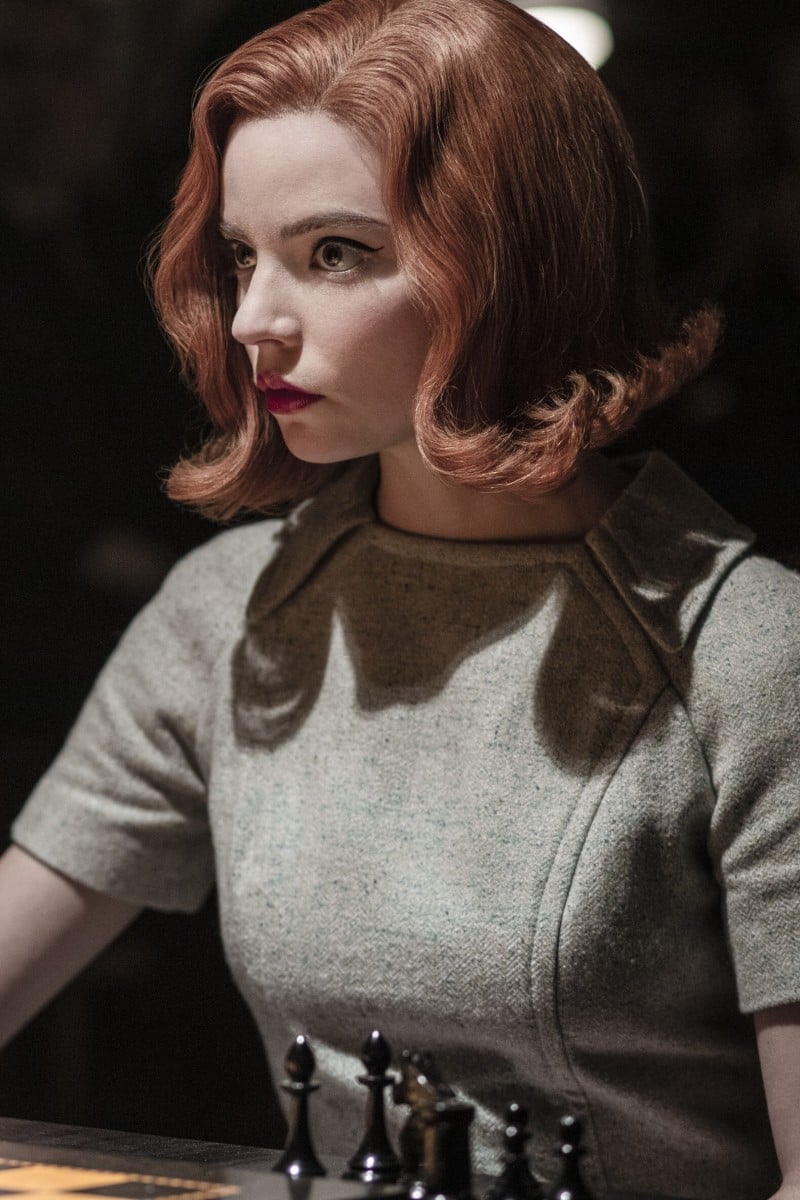
‘The Queen’s Gambit’: Two chess players break down the Netflix series
- Former members of the Hong Kong national team review the hit TV drama starring Anya Taylor-Joy
- The university students examine what the show gets right and wrong about the competitive world
 How true-to life is The Queen’s Gambit? Two chess champs break it down. Photo: DPA
How true-to life is The Queen’s Gambit? Two chess champs break it down. Photo: DPAAs competitive chess players who play for Hong Kong, we’ve seen a lot of different games and a lot of different opponents. But rarely have we seen as exciting a depiction of the game as in The Queen’s Gambit, the new Netflix miniseries. Much of it is genuinely reflective of the “real” chess environment – although there are, of course, some artistic “enhancements”.
But after all, as protagonist Beth Harmon (Anya Taylor-Joy) says, “Chess isn’t always competitive. It is also beautiful.”
The tournament setting
The series gets the tournament setting pretty on point. For the most part, the portrayal is just as it is in real life, with boards set up row by row in a competition hall.
It’s also true that when it’s down to the last board playing (especially when it’s the top board), players crowd around to spectate. Beth is told off for interrupting the players, and that’s true as well – you aren’t meant to talk!
Opponents rarely talk to each other at all during the game, unless absolutely necessary. Everything is expressed through facial expressions and body language.
So sometimes we do stare intensely to study the psychological state of the opponent – whether he or she is confident, worried, or planning the next big move.
On the board
As chess players, we found ourselves minutely following the on-screen games as they were being played. Much to our surprise, the creators actually recreated historical games for the matches in the show. For example, the final round of Beth’s maiden tournament against Harry Beltik was based on a real game between Rashid Gibiatovich Nezhmetdinov and Genrikh Kasparian in 1995.
In this game, Beth even plays the famous Queen sacrifice in her attack to win a checkmate in seven moves. This aptly portrays Beth as the bold and daring orphan prodigy she’s implied to be.
The Queen’s Gambit sets up a checkmate against male chauvinism: review
Exchanging knowledge
Even outside the hall, chess players always express their ideas on how the games should have been played. There are always loud crowds outside the halls, where new friendships are formed. The series portrays this beautifully.
In one of the episodes, Beth meets another player, Benny Watts, who informs her that “pawn to C4” was a better move in Beth’s game against Beltik.
In disbelief, Beth proceeds to play out the move on the chessboard, then stares at it in awe – it was indeed the best move she could’ve played in that position. These moments are ubiquitous.
As a female player
Katrina: The portrayal of women’s status in the chess scene is very realistic. Chess has always been a male-dominated game. When I first started competing in tournaments in Hong Kong as a 12-year-old, I was often the only girl in the chess hall. It was seen as “shameful” for a boy if he lost against me.
It was similarly difficult for Beth when she first starts competing. The organisers pair Beth with the only other girl at the “lowest” board, and force her to play in the “beginners” open, despite being far more advanced.
On the bright side, once you place in a couple of tournaments, you become well-respected and quite “well-known” – as is the case with Beth.
What’s missing
What isn’t really shown is that chess isn’t always that perfect or fun. Sometimes, you just miss a simple calculation and end up losing the game. The series tries its best to show the emotional toll of chess, through Beth’s addiction to her “vitamins”, and the depictions of her frustration after losing matches.
However, Beth’s flair sometimes oversimplifies the game - it misses out on the intensely stressful and nervous aspects of competitive chess, such as preparing for each game like a test, and repeatedly checking over your calculations at the board to make sure you haven’t missed a possible winning move by your opponent.
Once you’ve finished this Netflix show, head to Disney + for The Mandalorian Season 2
All in all
The series shows the joys that chess evokes – the beauty, creativity, and brilliance of the game. It manages to express that the game is as alive as the characters in this fictional tale. The series also delicately balances the pursuit of chess with life beyond the board.
What is enthralling about the show is that, in addition to the focus on Beth’s prodigious development in chess, it shares the relationships, struggles, and complexities of a chess player’s life around and outside the game.